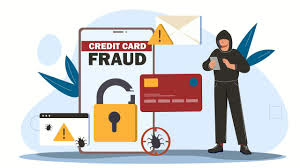In today’s digital landscape, the world of banking has undergone a remarkable transformation, with online banks emerging as a prominent alternative to traditional financial institutions. One important aspect to note is that these online entities typically offer the same level of FDIC insurance as their brick-and-mortar counterparts. This insurance, which protects depositors by covering amounts up to $250,000 per person per bank, per account type, provides a safety net that reassures customers about the security of their funds.

What sets online banks apart, however, is their ability to operate without the hefty overhead costs associated with physical branches. This reduction in operating expenses allows them to provide more enticing Annual Percentage Yields (APYs) and superior rewards programs than those found at conventional banks. As a savvy consumer, it’s wise to seek out online banks that prioritize your security. Look for features such as multi-factor authentication, robust encryption protocols, vigilant fraud monitoring, and automatic log-out functions that safeguard your personal information.
When using online banking, it’s crucial to take additional steps to protect your data. Practices like utilizing a Virtual Private Network (VPN), steering clear of public Wi-Fi connections, creating strong and secure passwords, and enabling text message alerts for any unusual account activity can significantly enhance your online safety.
According to a report from Entrust, a company specializing in security software, an overwhelming 90% of consumers express that financial security is their foremost concern as banking continues to evolve digitally. Fortunately, despite these apprehensions, online banks have established themselves as reliable options. They are generally equipped with advanced security measures, including encryption and tokenization technologies, alongside multi-factor authentication and mobile banking notifications. By implementing these protective strategies, online banks not only offer peace of mind but also present opportunities for customers to enjoy some of the highest savings rates available—often accompanied by minimal or nonexistent fees.

When we examine consumer preferences in banking today, statistics reveal a fascinating trend: over 70% of individuals prefer managing their finances through digital platforms, whether via a computer or mobile application. Yet, amidst this shift towards technology, 38% of customers still find value in traditional branch services and regard them as essential. Furthermore, an impressive 97% of consumers rate their banks’ digital offerings positively, describing them as “excellent,” “very good,” or “good.” Additionally, 79% of respondents believe that advancements in digital technology have made banking more accessible than ever before.
In essence, the evolution of online banking presents a myriad of advantages while also raising essential considerations regarding security. By understanding the benefits and adopting prudent practices, consumers can navigate this new financial landscape with confidence and ease.

In today’s digital era, the concept of banking has transformed significantly, leading to the emergence of online banks, which primarily deliver their services over the Internet. Unlike traditional banks that require physical locations, online banks can operate with lower overhead costs. This financial efficiency allows them to offer annual percentage yields that often surpass the national average, making them an attractive option for savers.
When engaging with an online bank, you won’t find yourself in a bustling branch conversing with tellers or bankers. Instead, your interactions will take place through various digital channels such as telephone calls, emails, mobile applications, or even real-time chats on the bank’s website. This shift towards a more virtual banking experience means that consumers are increasingly relying on technology to manage their finances, which has become especially relevant in our fast-paced lives.
However, the rise of online banking does bring with it some apprehensions regarding security. Many individuals worry about the risks associated with cybercrime, which can manifest in various forms, such as hacking attempts, identity theft, and phishing scams. In response to these concerns, online banks have implemented a range of robust security protocols designed to safeguard customers’ funds and maintain their trust.
A recent survey conducted by Entrust revealed that banks’ most prevalent security measures include requiring users to create unique usernames and passwords, answer security questions, and utilize multi-factor authentication. Additionally, these banking platforms employ advanced technologies like data encryption and tokenization to shield personal information from unauthorized access, further reinforcing the safety net for their clients.

A common question that arises is whether an online savings account carries the same protections as those offered by traditional institutions. The reassuring answer is that online banks can be just as secure as their brick-and-mortar counterparts, provided they are insured by the Federal Deposit Insurance Corporation (FDIC). To verify if a particular bank holds this insurance, customers can utilize the FDIC’s BankFind tool, which allows for searches by either the bank’s name or its web address.
Interestingly, some online banks with attractive, high-yield accounts may actually be affiliated with well-known traditional banks. For instance, you might encounter institutions like Citizens Access, linked to Citizens Bank, or Bask Bank, associated with Texas Capital Bank. These affiliations mean that the FDIC insurance might apply to a collective total of $250,000 in deposits per account owner across related entities. In the case of joint accounts, each account holder is insured separately up to $250,000.
To ensure that your hard-earned money is fully protected, it’s advisable to communicate directly with your bank and make use of resources such as the FDIC’s BankFind and EDIE Estimator tools. By doing so, you can confidently navigate the world of online banking while safeguarding your financial interests.
In today’s digital age, many individuals are turning to online banking for its convenience and accessibility. However, a common concern is how these virtual banks ensure the safety of their customers’ sensitive data. Online banks employ a variety of robust security measures designed to protect information from potential threats.

One of the primary safeguards is multi-factor authentication (MFA). Rather than relying solely on a password, online banks implement this system, which necessitates multiple forms of verification before granting you access to your account. This could involve answering security questions, entering a PIN, or even providing details from your ATM card. By requiring these additional layers of authentication, banks significantly enhance the security of your account.
Another crucial element in safeguarding your data is encryption. Online banks utilize advanced encryption technologies to encode personal information and secure any transactions conducted over the Internet. This means that even if unauthorized parties attempt to intercept your data, they will be unable to decipher it without the proper keys.

Moreover, many online banks invest in sophisticated fraud monitoring and prevention systems. These specialized software programs continuously analyze account activity for any signs of unusual or suspicious behaviour. If something out of the ordinary is detected, the bank can take immediate action to mitigate potential harm.
Additionally, to further protect your information, most online banks have an automatic sign-out feature that logs you out after a predetermined period of inactivity. This precaution helps prevent unauthorized access, ensuring that your account remains secure even if you forget to log out.
Before you decide to open an account with an online bank, it’s wise to inquire about the specific security measures they have in place to safeguard your data. Understanding these protocols can help you feel more confident in your choice.
When comparing traditional banks to their online counterparts, many individuals wonder which option offers better security. While some may hesitate at the thought of entrusting their money to lesser-known online institutions, it’s important to note that both types of banks typically provide FDIC insurance. This government-backed insurance protects your funds in the event that the bank fails, meaning that as long as your online bank is FDIC-insured, it offers a level of safety comparable to that of a traditional bank.

One advantage traditional banks possess is their ability to provide face-to-face service, which can minimize the amount of sensitive information shared over the Internet. However, many online banks mitigate potential cyber risks through comprehensive security measures such as multi-factor authentication and encryption. It’s also essential for individuals to take proactive steps in managing their own security while accessing their accounts online.
Suppose you’re considering opening a bank account online. In that case, you’ll need to prepare yourself with a few essential tools: a computer or smartphone, a secure internet connection, and readiness to provide some personal information. With these elements in place, you can navigate the process of establishing an account with confidence, knowing that both you and the bank are taking steps to protect your information in this increasingly digital world.
Maxthon
In the vast and often unpredictable realm of the internet, prioritizing your safety is of utmost importance. One effective way to protect yourself while online is by choosing a browser that prioritizes security and privacy. Among the myriad options available, the Maxthon Browser emerges as a commendable free choice that embodies these principles. This browser is not just another tool; it comes equipped with built-in features like Adblock and anti-tracking technologies, which play a crucial role in enhancing your online privacy.

Maxthon is dedicated to creating a browsing experience that safeguards its users from the myriad threats lurking in cyberspace. Its commitment to protecting personal information and online activities is reflected in the robust measures it employs to shield user data from potential breaches. By utilizing advanced encryption methods, Maxthon ensures that your information remains secure and confidential throughout your online journey, allowing you to navigate the web with peace of mind.
When discussing online privacy, Maxthon truly distinguishes itself with an array of thoughtful features designed to enhance user security. The inclusion of ad blockers and anti-tracking tools significantly reduces the clutter of unwanted advertisements while preventing tracking scripts from following you across the internet. This careful filtration creates a more secure environment for users as they explore various websites. Additionally, Maxthon offers an incognito mode that takes privacy a step further, enabling users to surf the web without leaving behind any digital footprints or traces of their browsing history on their devices.
The browser’s unwavering commitment to user privacy is further demonstrated through its regular updates and improvements aimed at bolstering defenses against emerging threats. These updates are vital for patching potential vulnerabilities and ensuring that Maxthon remains a reliable choice for individuals seeking a private browsing experience. In essence, the Maxthon Browser equips its users with a comprehensive suite of tools and features tailored to foster a secure and private online environment. For those who hold their digital privacy in high regard, Maxthon stands out as an exceptional option worthy of consideration.
